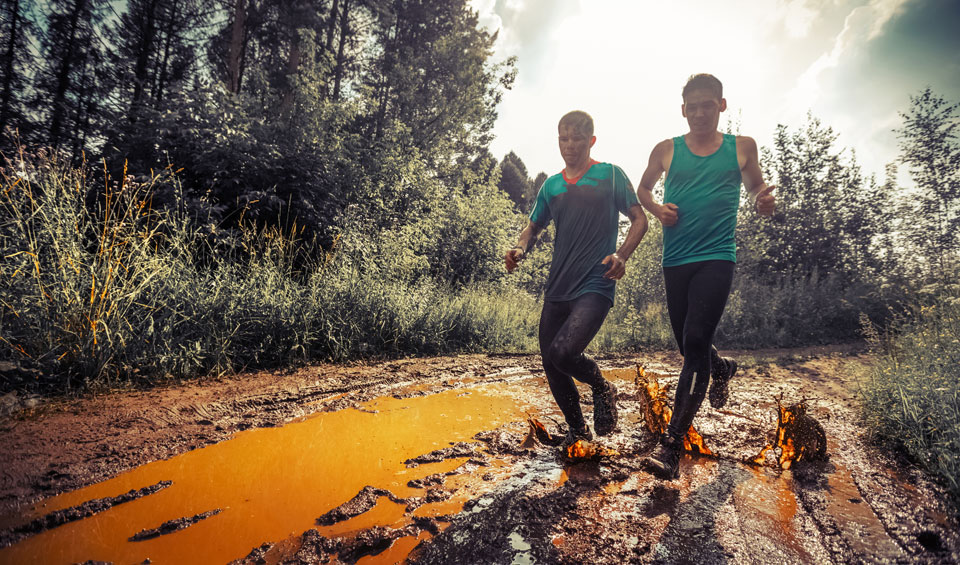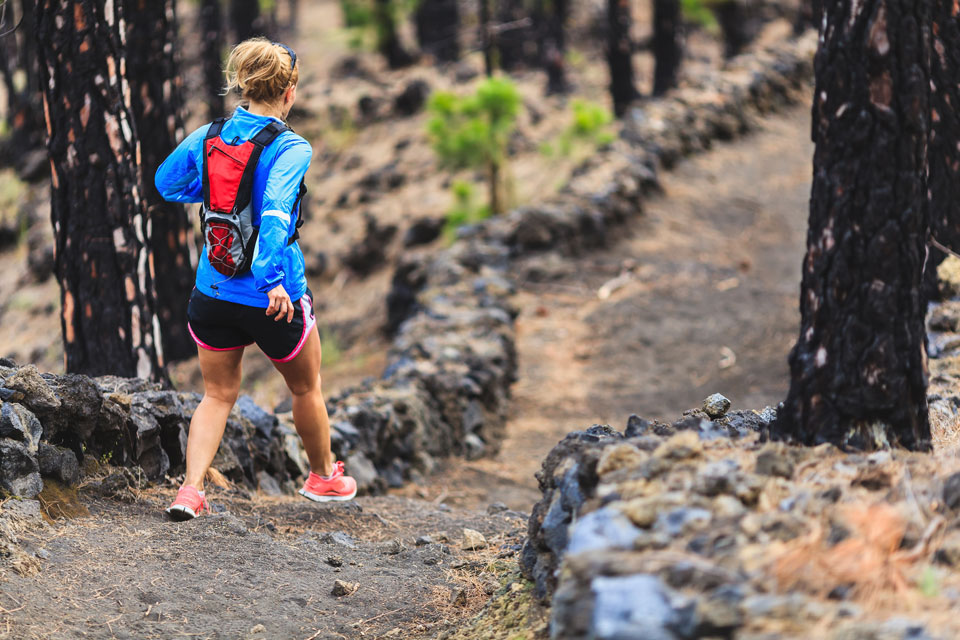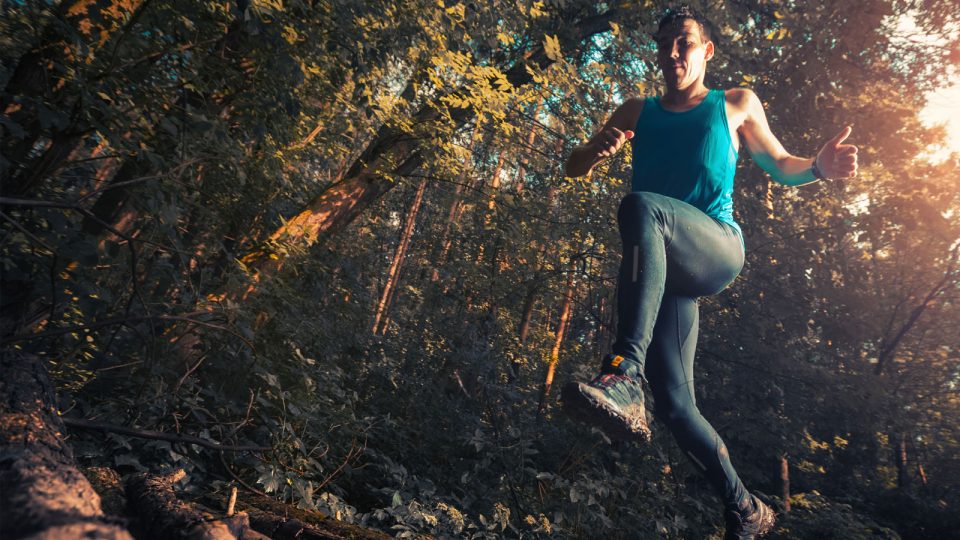Let’s say you’ve survived the earliest days of your interest in running and have morphed from novice to addict. Skipping a day of conditioning or working out is simply unthinkable and you’ve reached a point where you want to challenge yourself even more.
Sounds like you’re a candidate for trail running. Of course, it’s important to do a gut check before signing up for a trail run, but if you jump in, you will satisfy your craving for the ultimate experience. Think you’re ready? You’ll be ready to answer that question by the end of this article.
Does the thought of a trail run scare you?
What stops runners from advancing to ultra runs? Fear, of course. That bone-chilling doubt that lurks in the heart of even the most confident marathon runner. You worry that you might not be able to handle what trails throw your way. You’re concerned about injury. But if you’re like most people considering a trail run, you probably don’t feel scared 24/7, so don’t let this fear keep you from doing what you want.
Even seasoned trail runners get scared. But fear can be good thing because it keeps you safe. Accept that reality and it could be easier to make your trail run decision. As self-help author Susan Jeffers said when she named her quintessentially popular self-help book, “Feel the fear and do it anyway!” Make that your mantra.

Trail running basics
Excuse us for stating the obvious, but yes, your journey will literally begin on some sort of trail as you set a conditioning programme to get your body and mind ready for this challenge. Trail runs not only offer runners plenty of surprises underfoot as runners scurry over dirt, rocks and boulders, but as this happens, your entire body is going to have to make adjustments that ordinary cement or asphalt surfaces don’t require.
Consequently, you must train specifically for this run or your risk for injury — particularly ankle injuries — increases exponentially. According to a 2014 study by Eswar Krishnan and Martin Hoffman, metatarsal stress fractures are the most common injuries suffered on trail runs. Build in adjustment time. Stick to your old shoes until your body adapts to the rugged terrain, a different cadence and tempo before investing in speciality shoes.
Exercise on and off the trail
It’s always a good idea to begin training slowly, even if you’re a seasoned runner. Everything about the way you carry yourself on uneven ground is new so sports medicine professionals encourage runners to adopt foot strengthening exercises to build up your foot muscles for the assaults that lay ahead. You can do foot shortening exercises any time you like: Just sit in a chair, plant your foot on the ground and use only the plantar intrinsic muscles beneath your arch to “shorten” the foot, raise the arch and repeat.
Your leg muscles also need extra love. Add calf and Achilles exercises to condition your legs and, importantly, undertake single-leg balances, glute, hip and hamstring strengtheners plus as much time training on uphill and downhill terrain as you can.

Next up, your head!
Say what? Trail running requires head exercises? You bet. Your physical safety could be at risk if you don’t train yourself to scan the trail before you and teach yourself to be more mindful of the ground you’re covering. This is particularly critical if you have sight issues. While many traditional runners are comfortable running without their glasses or contact lenses, you can’t afford to take the chance on trail runs because every footfall you experience during a trail race is likely to be uneven and perhaps hazardous.
Medical professionals recommend wearing glasses or contacts on trail runs if your eyesight isn’t 20/20, and if your event is held at night, some sort of headlight isn’t just recommended but critical if you want to avoid any number of accidents.
How to decide if you’re ready
We live in an age of experiential media so there is no shortage of videos floating around cyberspace that offer a taste of what to expect on a typical trail run.

As you prepare for your trail race experience, ask yourself these questions to assess your chances of finishing your trail run in super shape:
- Are you comfortable all alone in natural settings for long periods of time?
- Are you willing to challenge your constitution to “eat on the run” literally?
- Do you still have plenty of energy left after completing a regular marathon?
- Are you confident that your first-aid skills are adequate should you be injured?
- Do you ignore people who call you “crazy” when you mention trying a trail run?
- Do you have a hunch that a trail run can help you think differently about fear?
- Do you remain energised after long outdoor treks that exhaust everyone else?
- Is taking outdoor “nature breaks” no big deal to you?
- Are you curious about how you will react to so arduous a trail test?
- Do friends believe you’re ready for trail running even if you’re not?
What’s the lamest excuse you’ve ever heard from fellow runners about why they have no desire to try running a trail race?




